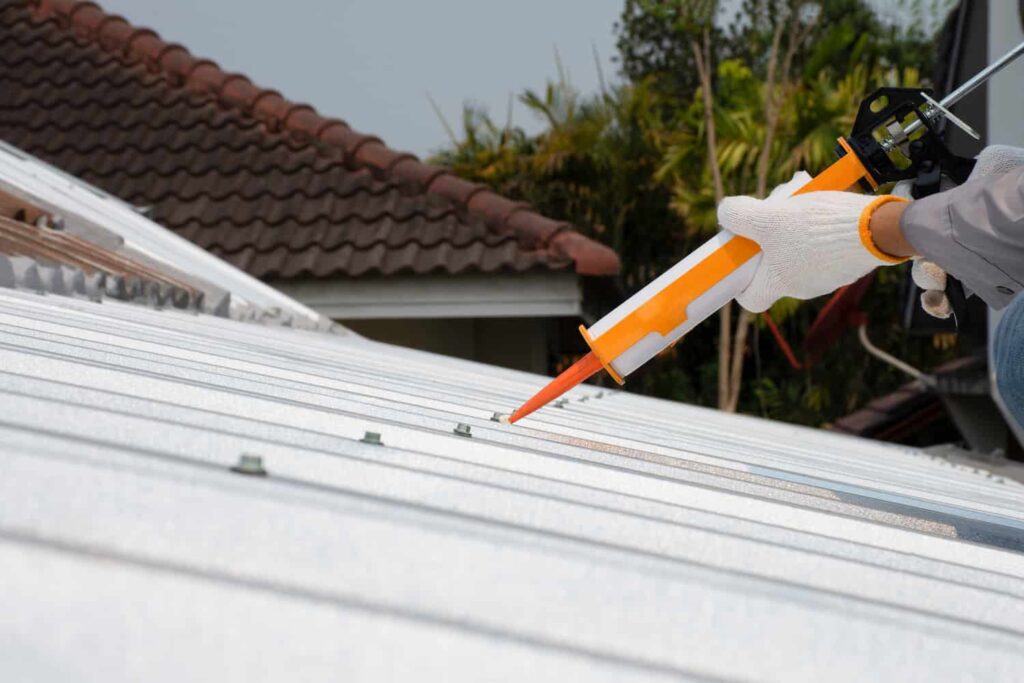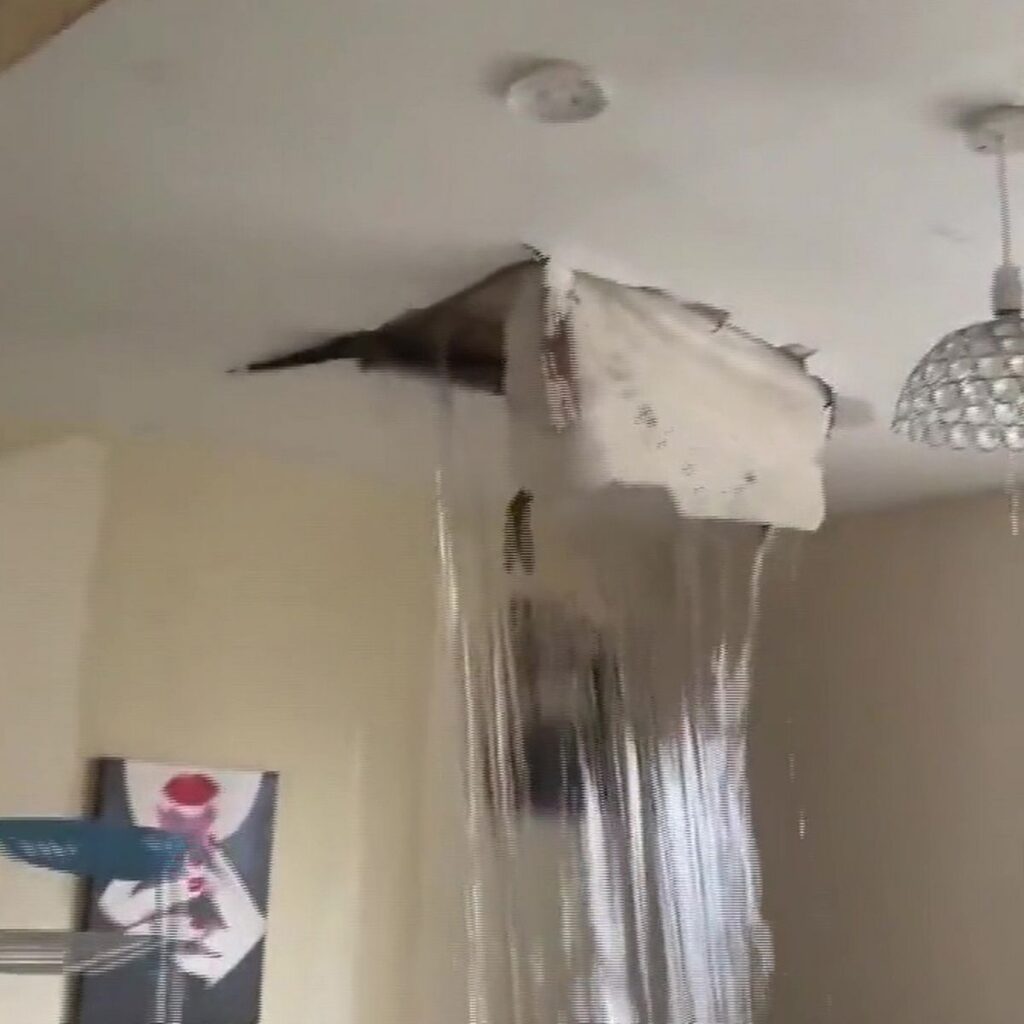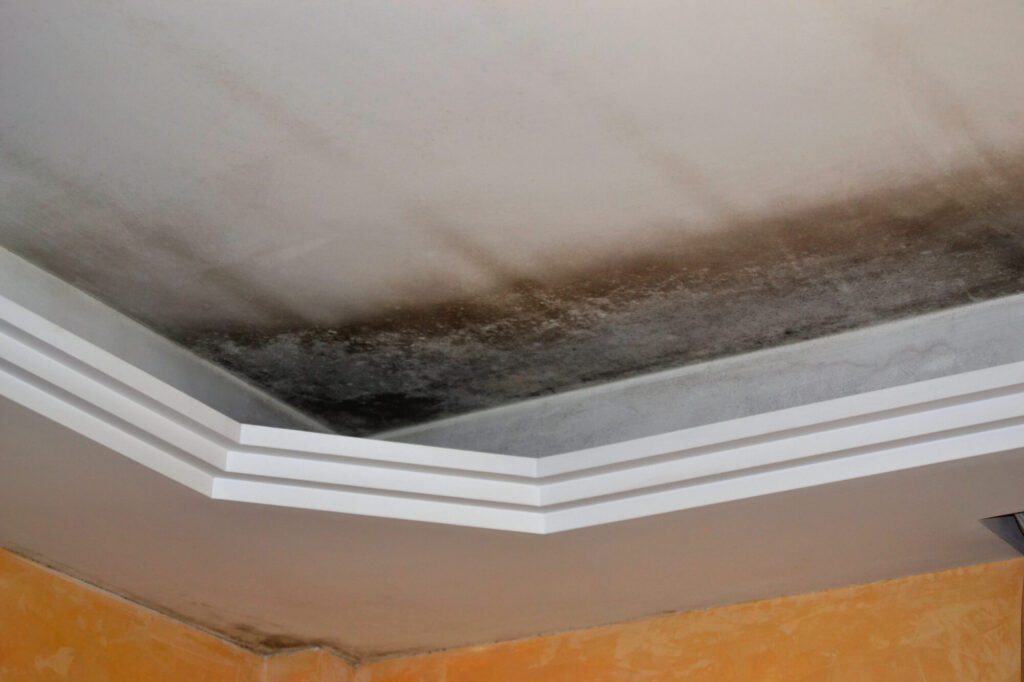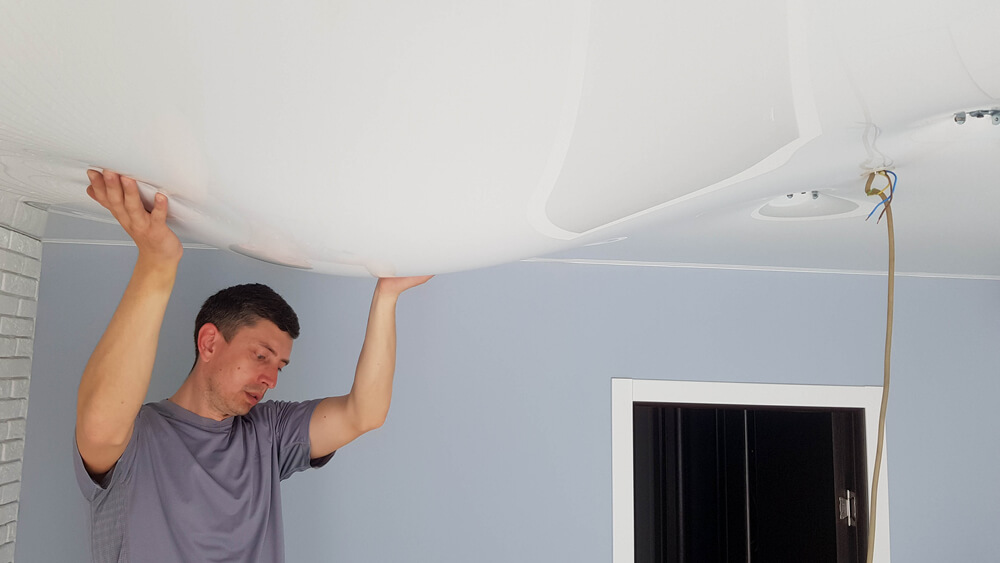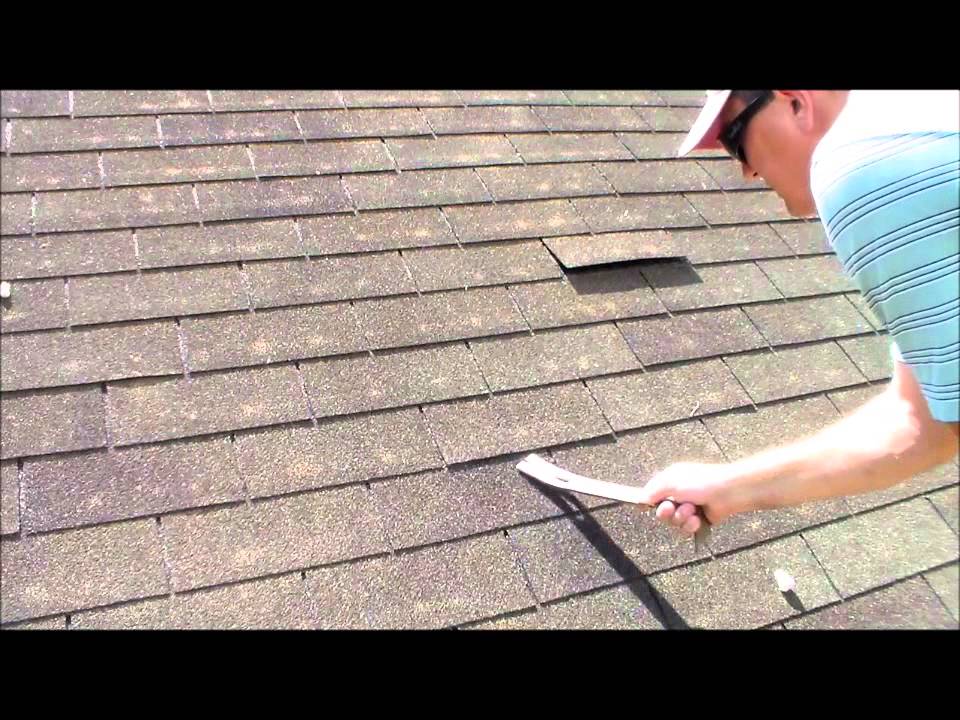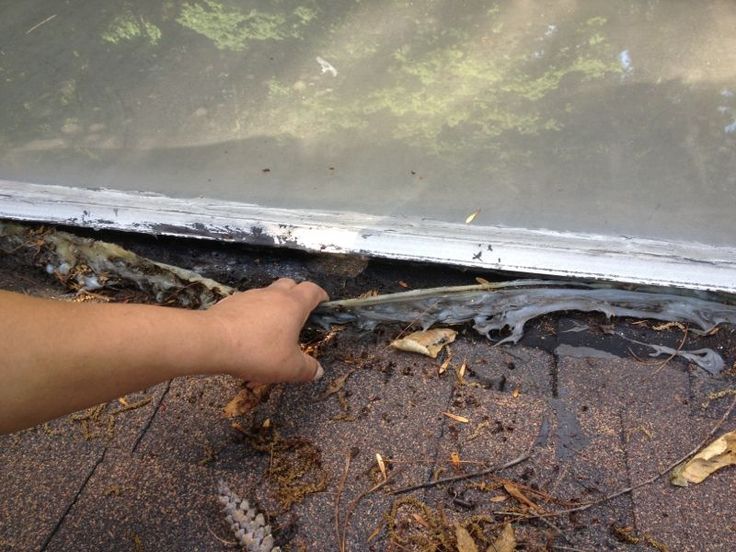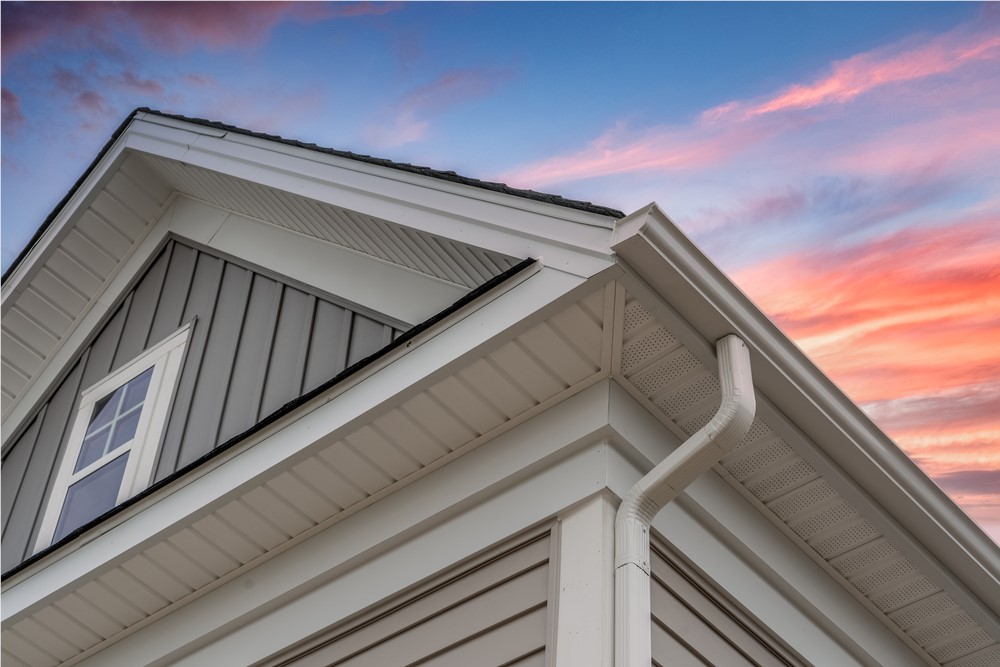If you’re searching for the ideal roof sealant to protect your home, look no further. Deciding on the best roof sealant can sometimes feel overwhelming with the multitude of options available. From liquid options to caulk-like sealants, understanding which one will provide the most effective protection can be a daunting task. However, fear not, as this article will provide you with all the essential information you need to make an informed decision and ensure your roof remains secure and leak-free for years to come.
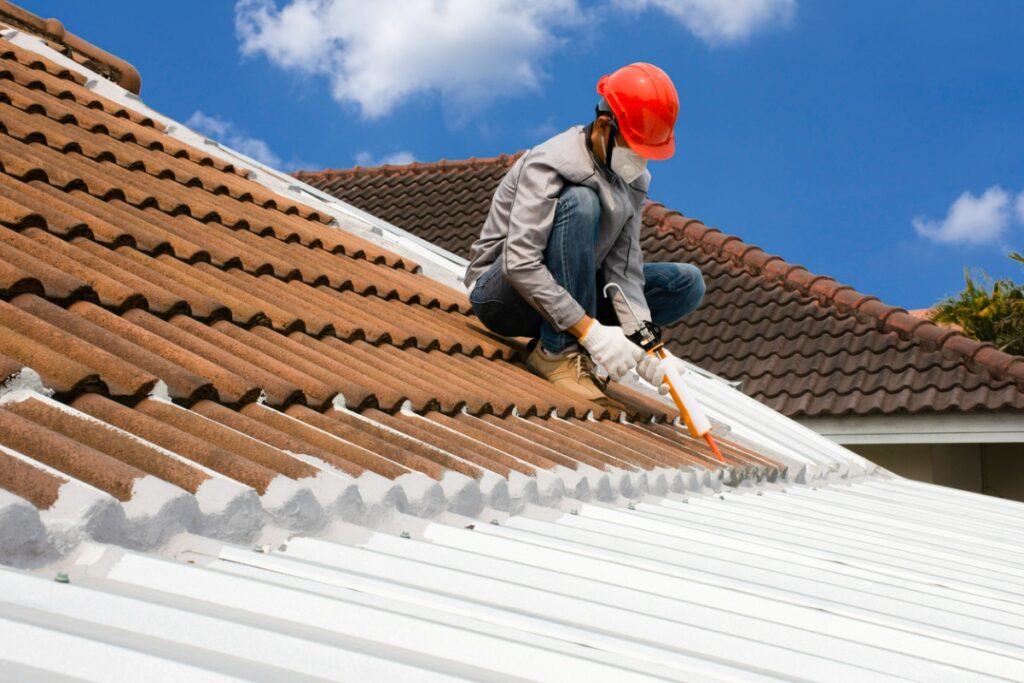

Types of Roof Sealants
When it comes to protecting your roof and ensuring its longevity, applying a roof sealant is essential. Roof sealants are products that provide a protective layer on your roof, preventing leaks, water damage, and other issues. There are several types of roof sealants available in the market, each with its own advantages and disadvantages. In this article, we will explore the different types of roof sealants, factors to consider when choosing one, popular brands, and compare their performance.
Silicone Roof Sealants
Silicone roof sealants are one of the most popular choices due to their excellent weather resistance and durability. They are resistant to UV rays, extreme temperatures, and moisture, making them suitable for various climates. Silicone sealants also have high elasticity, allowing them to expand and contract with the roof, minimizing the risk of cracks and leaks. They have a long lifespan and require minimal maintenance. However, they tend to be more expensive compared to other types of sealants.
Acrylic Roof Sealants
Acrylic roof sealants provide good protection against UV rays and are known for their affordability. They are easy to apply and dry relatively quickly, making them a convenient choice for DIY homeowners. Acrylic sealants also provide decent flexibility and durability, although they may not last as long as silicone or polyurethane sealants. They are best suited for climates with mild to moderate weather conditions.
Polyurethane Roof Sealants
Polyurethane roof sealants are known for their exceptional durability and high-performance capabilities. They have excellent adhesion properties, making them suitable for various roof types and materials. Polyurethane sealants provide superior flexibility and can withstand extreme weather conditions, including heavy rains and storms. They are also resistant to UV rays and do not yellow or degrade over time. However, they are typically more expensive and can be more challenging to apply compared to other sealant types.
Butyl Roof Sealants
Butyl roof sealants are highly flexible and offer excellent adhesive properties. They are easy to work with and provide good resistance against water and moisture. Butyl sealants are commonly used for sealing joints and gaps in roofs, preventing leaks and water infiltration. They have a long lifespan and do not degrade quickly. However, they may not provide the same level of durability and weather resistance as silicone or polyurethane sealants.
Asphalt Roof Sealants
Asphalt roof sealants, also known as roof coatings, are primarily used for asphalt shingle roofs. They provide a protective layer that helps to extend the lifespan of the shingles and prevent water damage. Asphalt sealants are affordable and easy to apply, making them a popular choice for homeowners on a budget. However, they may not offer as much durability and longevity as other sealant types.
Factors to Consider
Choosing the right roof sealant for your needs requires careful consideration of various factors. Here are some key factors to keep in mind:
Roof Type
Different types of roofs require different sealants. Consider the material and construction of your roof when selecting a sealant. Ensure compatibility and suitability for your roof type to achieve optimal results.
Climate
Your local climate plays a significant role in determining which sealant is best for your roof. If you live in an area with extreme temperatures, high humidity, or frequent rains, you need a sealant that can withstand these conditions and provide adequate protection.
Application Method
Consider how the sealant will be applied. Some sealants are suitable for DIY application, while others may require professional installation. Take into account your comfort level and expertise when choosing a sealant.
Durability
The durability and longevity of the sealant are crucial factors. You want a sealant that will withstand the test of time and not deteriorate quickly. Look for sealants with a long lifespan and resistance to weathering.
Cost
Budget is always a consideration. Roof sealants vary in price, so it’s important to find a balance between cost and quality. Consider the overall value and long-term benefits when comparing prices.
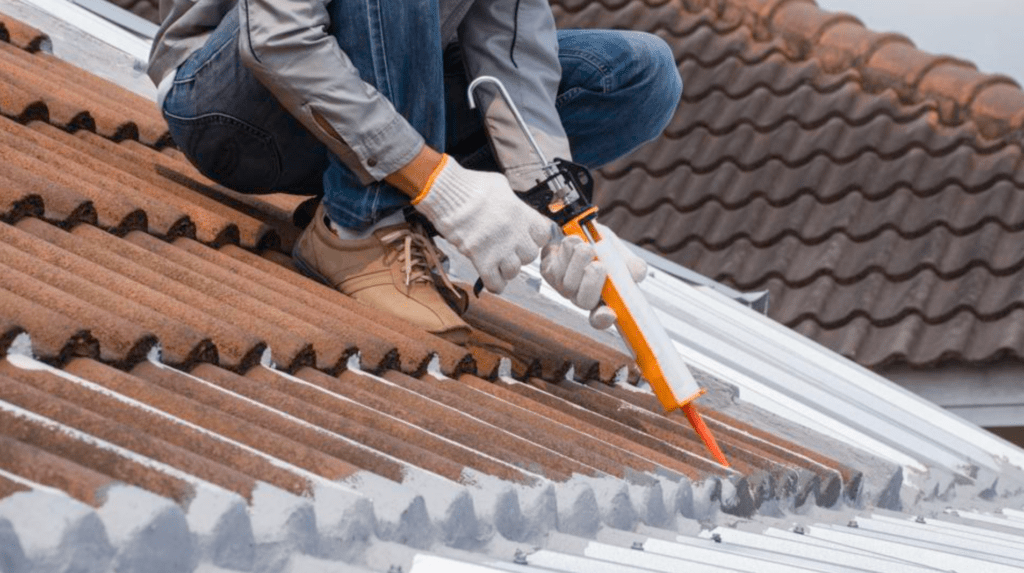

Popular Brands
There are numerous brands that manufacture roof sealants, each with its own reputation and product offerings. Here are some popular brands in the market:
GacoRoof
GacoRoof is known for its high-quality silicone roof sealants. They offer a range of products that provide excellent weather resistance and durability. GacoRoof sealants are trusted by professionals and homeowners alike.
Henry Company
Henry Company is a well-established brand in the roofing industry, offering a wide range of roof sealants, including silicone, acrylic, and asphalt-based options. They provide reliable products known for their quality and performance.
Geocel
Geocel is known for its innovative roof sealant solutions. They have a comprehensive range of sealants that cater to different roof types and applications. Geocel products are trusted for their durability and weather resistance.
Titebond
Titebond is a reputable brand that offers a variety of roof sealants, including silicone and polyurethane options. Their sealants provide excellent adhesion and long-lasting protection for roofs.
DAP
DAP is a trusted brand that manufactures a range of roof sealants suitable for different applications. Their products are known for their reliability and quality, making them a popular choice among contractors and homeowners.
Silicone Roof Sealants
Silicone roof sealants are preferred by many due to their exceptional performance and durability. Here are some advantages of using silicone sealants on your roof:
Advantages
- Excellent Weather Resistance: Silicone sealants offer high resistance to UV rays, extreme temperatures, and moisture. They can withstand harsh weather conditions without deteriorating or cracking.
- Long Lifespan: Silicone sealants have a long lifespan and require minimal maintenance. Once applied, they can last for many years, saving you time and money on frequent repairs or replacements.
- Superior Flexibility: Silicone sealants are highly flexible, allowing them to expand and contract with the roof as temperatures change. This flexibility minimizes the risk of cracks, leaks, and other damages.
- Easy Application: Silicone sealants are relatively easy to apply, making them suitable for DIY projects. They can be applied using a caulking gun or brush, providing convenience and flexibility.
Disadvantages
- Higher Cost: Silicone sealants tend to be more expensive compared to other types of roof sealants. While their long lifespan and performance justify the cost, it may not be the most budget-friendly option for everyone.
- Longer Cure Time: Silicone sealants typically require a longer cure time compared to other sealant types. This means you may need to wait longer before exposing your roof to heavy rain or other extreme weather conditions.
Suitable Applications
Silicone roof sealants are suitable for various roof types, including flat roofs, metal roofs, and shingle roofs. They are commonly used for sealing gaps, cracks, and joints, providing a watertight and durable seal.
Popular Products
Some popular silicone roof sealants include GacoRoof Silicone Roof Coating, Henry Company 208R Rubberized Wet Patch, Geocel Pro Flex Multi-Purpose Brushable Sealant, Titebond WeatherMaster Metal Roof Sealant, and DAP Silicone Roof Sealant.
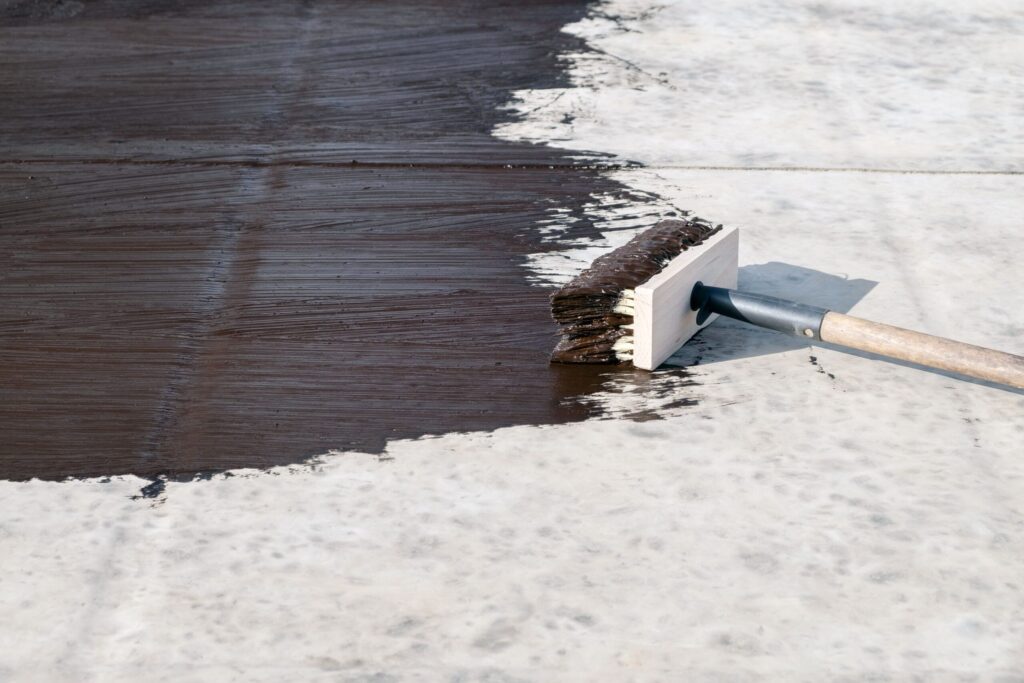

Acrylic Roof Sealants
Acrylic roof sealants are another popular option, known for their affordability and ease of use. Here are some advantages of using acrylic sealants on your roof:
Advantages
- Affordability: Acrylic sealants are generally more budget-friendly compared to silicone or polyurethane options. If cost is a significant factor for you, acrylic sealants offer good value for money.
- Decent Durability: While not as durable as silicone or polyurethane sealants, acrylic sealants still provide reasonable durability. They can withstand moderate weather conditions and offer good protection against UV rays.
- Quick Drying Time: Acrylic sealants dry relatively quickly, allowing for faster completion of your roofing project. This makes them ideal for DIY homeowners who want to get the job done efficiently.
Disadvantages
- Limited Longevity: Acrylic sealants may not last as long as silicone or polyurethane sealants. Over time, they may degrade, become brittle, or lose their effectiveness. Regular maintenance and reapplication may be required.
- Moderate Flexibility: While acrylic sealants offer some flexibility, they may not be as flexible as silicone or polyurethane sealants. This can increase the risk of cracks and leaks, especially in extreme weather conditions.
Suitable Applications
Acrylic roof sealants are suitable for roofs in areas with mild to moderate weather conditions. They can be used on various roof types, including shingle roofs, metal roofs, and flat roofs. Acrylic sealants are commonly used for repairing minor leaks, sealing small cracks, and performing routine maintenance.
Popular Products
Some popular acrylic roof sealants include Henry Company 587 100% Acrylic Dura-Brite White Elastomeric Roof Coating, Geocel Pro Flex Acrylic Brushable Sealant, Titebond WeatherMaster Acrylic Polymer Sealant, and DAP 620 Premium Acrylic Roof Sealant.
Polyurethane Roof Sealants
Polyurethane roof sealants are known for their durability and high-performance capabilities. Here are some advantages of using polyurethane sealants on your roof:
Advantages
- Exceptional Durability: Polyurethane sealants offer excellent durability and longevity. They can withstand extreme weather conditions, including heavy rain, storms, and intense UV rays. Polyurethane sealants are resistant to cracking, tearing, or degrading over time.
- Superior Adhesion: Polyurethane sealants adhere well to various roof surfaces, providing a reliable and watertight seal. They can be used on different roof types and materials, including metal, concrete, and wood.
- Outstanding Flexibility: Polyurethane sealants are highly flexible, allowing them to expand and contract with the roof as it experiences temperature changes. This flexibility prevents the formation of cracks and ensures the sealant remains intact.
- Resistance to UV Rays: Polyurethane sealants have good UV resistance, ensuring they do not yellow or degrade when exposed to sunlight. This makes them an ideal choice for roofs that receive prolonged sun exposure.
Disadvantages
- Higher Cost: Polyurethane sealants are generally more expensive compared to other sealant types. However, their durability and performance justify the cost, as they can potentially save you money in the long run by reducing the need for frequent repairs or replacements.
- More Challenging Application: Polyurethane sealants may require more careful application compared to other types. They often need to be mixed or applied using specialized equipment. Due to their quick drying time, proper planning and preparation are essential.
Suitable Applications
Polyurethane roof sealants are suitable for various roof types, including flat roofs, metal roofs, and concrete roofs. They are commonly used for sealing joints, repairing flashing, and providing a watertight seal on vulnerable areas of the roof.
Popular Products
Some popular polyurethane roof sealants include GacoRoof 100% Silicone Roof Coating, Henry Company HE585 Premium Asphalt and Composites Fibrated Roof Coating, Geocel Pro Flex Brushable Sealant, Titebond WeatherMaster Metal Roof Sealant, and DAP Extreme Stretch Premium Urethane Roof Sealant.
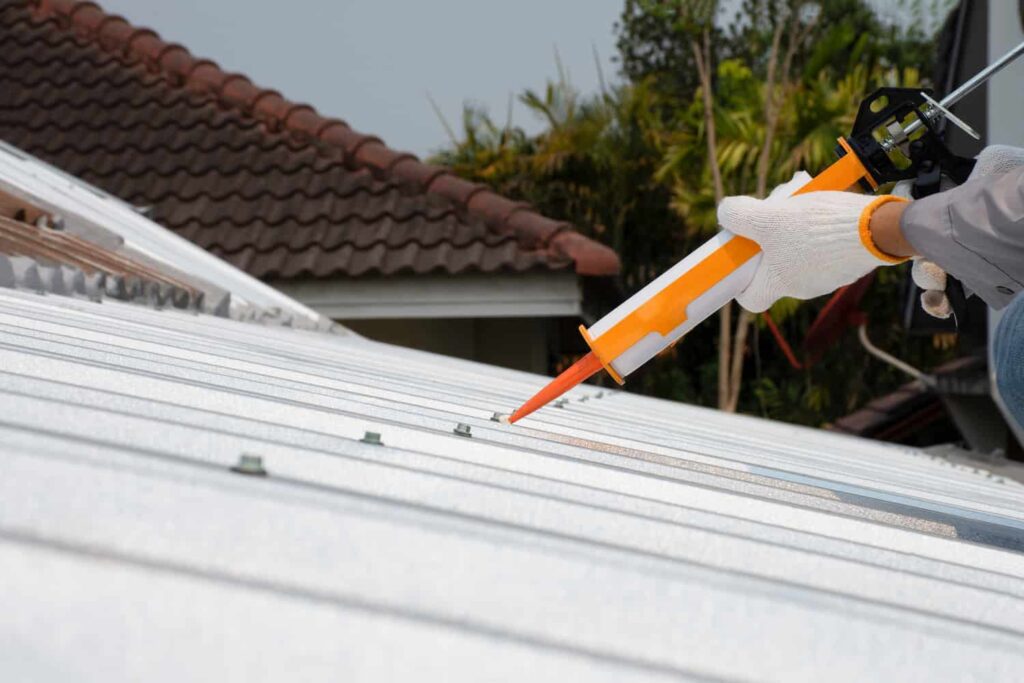

Butyl Roof Sealants
Butyl roof sealants are known for their flexibility and excellent adhesive properties. Here are some advantages of using butyl sealants on your roof:
Advantages
- High Flexibility: Butyl sealants offer excellent flexibility, allowing them to withstand movement and expansions of the roof without compromising the seal. They can flex and stretch with the roof, reducing the risk of leaks and cracks.
- Easy Application: Butyl sealants are easy to work with and can be applied using a caulking gun or trowel. They have a smooth consistency, making them user-friendly for both professional contractors and DIY homeowners.
- Good Resistance against Water: Butyl sealants provide reliable resistance against water and moisture. They create a strong seal that prevents water infiltration and helps to maintain the integrity of your roof structure.
- Long Lifespan: Butyl sealants have a long lifespan and do not degrade quickly. Once applied, they offer lasting protection and require minimal maintenance.
Disadvantages
- Lower Weather Resistance: While butyl sealants provide good resistance against water, they may not be as weather-resistant as other sealant types. In areas with extreme weather conditions or prolonged sun exposure, they may degrade or lose their effectiveness over time.
- Limited UV Resistance: Butyl sealants may yellow or degrade when exposed to UV rays for extended periods. They are best suited for areas with limited sun exposure or where UV protection is provided by other means.
Suitable Applications
Butyl roof sealants are commonly used for sealing joints, gaps, and cracks on various roof types, including metal roofs, flat roofs, and concrete roofs. They are especially effective for sealing around vents, chimneys, and other protrusions.
Popular Products
Some popular butyl roof sealants include Geocel Pro Flex RV Flexible Sealant, Henry Company HE209 Extreme Wet Patch, Titebond WeatherMaster Metal Roof Sealant, and DAP Butyl-Flex Gutter and Flashing Sealant.
Asphalt Roof Sealants
Asphalt roof sealants, also known as roof coatings, are primarily designed for asphalt shingle roofs. Here are some advantages of using asphalt sealants on your roof:
Advantages
- Affordable: Asphalt sealants are generally more affordable compared to other sealant types, making them a cost-effective option. They provide a protective layer that helps extend the lifespan of asphalt shingles without breaking the bank.
- Easy Application: Asphalt sealants are easy to apply and can be done with a brush, roller, or sprayer. They have a liquid consistency that spreads evenly, ensuring adequate coverage and protection for your shingles.
- UV Protection: Asphalt sealants provide good protection against UV rays, which can cause shingles to deteriorate and fade over time. They help to preserve the color and overall appearance of your roof, giving it a fresh and new look.
- Mild Waterproofing: While not as effective as other sealant types, asphalt sealants offer some waterproofing capabilities. They can help to prevent minor leaks and water infiltration into the underlying layers of the roof.
Disadvantages
- Limited Durability: Asphalt sealants may not offer the same level of durability and longevity as other sealant types. They may wear off over time and require more frequent reapplication to maintain their effectiveness.
- Moderate Resistance to Extreme Weather: While asphalt sealants provide decent UV protection, they may not hold up as well in extreme weather conditions. Heavy rains, hailstorms, or strong winds can potentially compromise the sealant and cause damage to the shingles.
Suitable Applications
Asphalt roof sealants are specifically designed for asphalt shingle roofs. They are often used to rejuvenate older roofs, provide additional weatherproofing, and enhance the overall appearance of the roof.
Popular Products
Some popular asphalt roof sealants include Henry Company 101 Non-Fibered Foundation Coating, Geocel Pro Flex Brushable Sealant, Titebond WeatherMaster Metal Roof Sealant, and DAP Asphalt Roof Sealant.
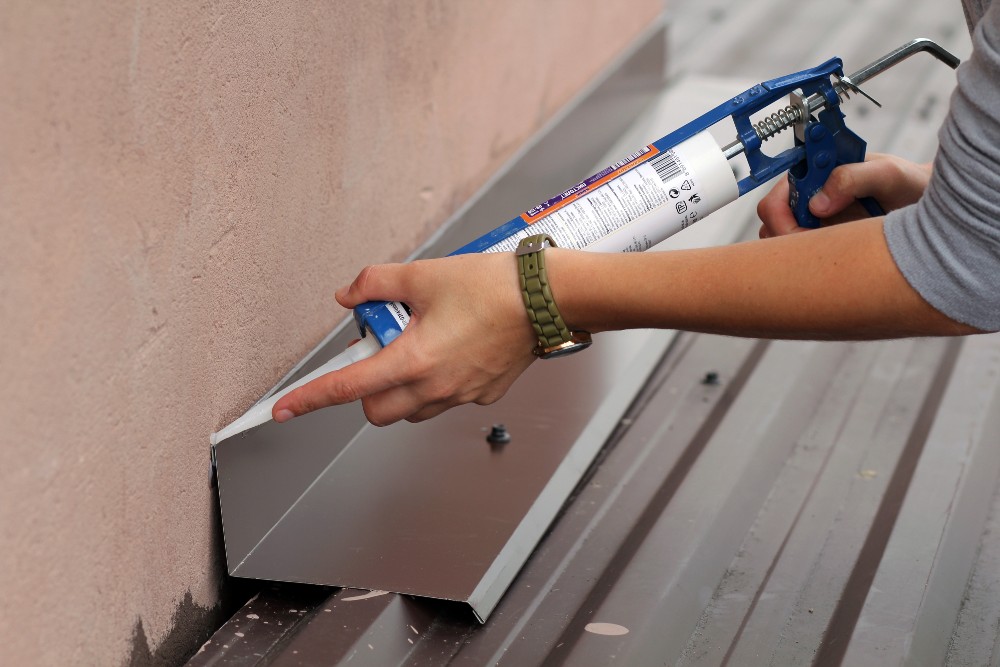

Comparison of Roof Sealants
Now that we have explored the different types of roof sealants, let’s compare their performance in various aspects:
Performance
- Silicone sealants offer excellent performance, particularly in terms of weather resistance and flexibility.
- Polyurethane sealants provide exceptional durability and adhesion properties.
- Butyl sealants offer high flexibility and ease of application.
- Acrylic sealants provide reasonable performance at a more affordable price point.
- Asphalt sealants offer basic protection and are primarily designed for asphalt shingle roofs.
Longevity
- Silicone and polyurethane sealants have a long lifespan and require minimal maintenance.
- Butyl sealants and acrylic sealants have a decent lifespan but may require periodic reapplication.
- Asphalt sealants have a moderate lifespan and may need more frequent reapplication compared to other sealants.
Flexibility
- Silicone and polyurethane sealants offer superior flexibility, allowing them to withstand movements and expansions of the roof.
- Butyl sealants provide good flexibility but may not be as flexible as silicone or polyurethane sealants.
- Acrylic and asphalt sealants have moderate flexibility.
Weather Resistance
- Silicone sealants and polyurethane sealants offer excellent resistance against UV rays, extreme temperatures, and moisture.
- Butyl sealants provide good resistance against water and moisture but may not offer the same level of weather resistance as silicone or polyurethane sealants.
- Acrylic sealants and asphalt sealants offer moderate weather resistance.
Price
- Silicone sealants and polyurethane sealants tend to be more expensive compared to other sealant types.
- Butyl sealants and acrylic sealants offer a good balance between performance and affordability.
- Asphalt sealants are the most budget-friendly option.
Considering these factors will help you choose the right roof sealant that best suits your specific needs, budget, and the requirements of your roof.
Conclusion
Choosing the best roof sealant for your roof involves careful consideration of various factors, such as your roof type, climate, application method, durability, and cost. Silicone, acrylic, polyurethane, butyl, and asphalt roof sealants each have their own advantages and disadvantages. By understanding their characteristics and performance, you can make an informed decision that will ensure the long-term protection and integrity of your roof. Don’t forget to consider the popular brands mentioned in this article, as they have a reputation for producing reliable and quality sealant products. Whether you opt for a silicone sealant for its weather resistance or an asphalt sealant for its affordability, you can find the best roof sealant that meets your specific needs and safeguards your roof against leaks and damage.

